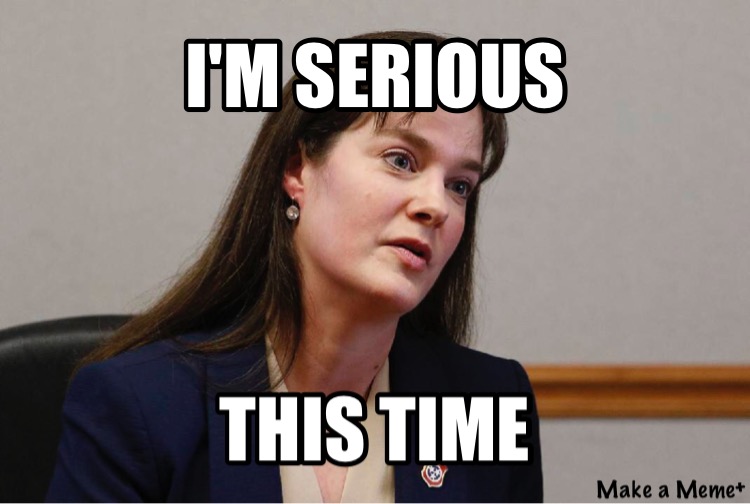Much is being made of Tennessee’s teacher evaluation system as a “key driver” in recent “success” in the state’s schools.
A closer look, however, reveals there’s more to the story.
Here’s a key piece of information in a recent story in the Commercial Appeal:
The report admits an inability to draw a direct, causal link from the changes in teacher evaluations, implemented during the 2011-12 school year, and the subsequent growth in classrooms across the state.
Over the same years, the state has also raised its education standards, overhauled its assessment and teacher preparation programs and implemented new turnaround programs for struggling schools.
Of course, it’s also worth noting that BEFORE any of these changes, Tennessee students were scoring well on the state’s TCAP test — teachers were given a mark and were consistently hitting the mark, no matter the evaluation style.
Additionally, it’s worth noting that “growth” as it relates to the current TNReady test is difficult to measure due to the unreliable test administration, including this year’s problems with hackers and dump trucks.
While the TEAM evaluation rubric is certainly more comprehensive than those used in the past, the classroom observation piece becomes difficult to capture in a single observation and the TVAAS-based growth component is fraught with problems even under the best circumstances.
Let’s look again, though, at the claim of sustained “success” since the implementation of these evaluation measures as well as other changes.
We’ll turn to the oft-lauded NAEP results for a closer look:
First, notice that between 2009 and 2011, Tennessee saw drops in 4th and 8th grade reading and 8th grade math. That helps explain the “big gains” seen in 2013. Next, note that in 4th and 8th grade reading and 4th grade math, our 2017 scores are lower than the 2013 scores. There’s that leveling off I suggested was likely. Finally, note that in 4th and 8th grade reading, the 2017 scores are very close to the 2009 scores. So much for “fastest-improving.”
Tennessee is four points below the national average in both 4th and 8th grade math. When it comes to reading, we are 3 points behind the national average in 4th grade and 5 points behind in 8th grade.
All of this to say: You can’t say you’re the fastest-improving state on NAEP based on one testing cycle. You also shouldn’t make long-term policy decisions based on seemingly fabulous results in one testing cycle. Since 2013, Tennessee has doubled down on reforms with what now appears to be little positive result.
In other words, in terms of a national comparison of education “success,” Tennessee still has a long way to go.
That may well be because we have yet to actually meaningfully improve investment in schools:
Tennessee is near the bottom. The data shows we’re not improving (Since Bill Haslam became Governor). At least not faster than other states.
We ranked 44th in the country for investment in public schools back in 2010 — just before these reforms — and we rank 44th now.
Next, let’s turn to the issue of assessing growth. Even in good years, that’s problematic using value-added data:
And so perhaps we shouldn’t be using value-added modeling for more than informing teachers about their students and their own performance. Using it as one small tool as they seek to continuously improve practice. One might even mention a VAM score on an evaluation — but one certainly wouldn’t base 35-50% of a teacher’s entire evaluation on such data. In light of these numbers from the Harvard researchers, that seems entirely irresponsible.
Then, there’s the issue of fairness when it comes to using TVAAS. Two different studies have shown notable discrepancies in the value-added scores of middle school teachers at various levels:
Last year, I wrote about a study of Tennessee TVAAS scores conducted by Jessica Holloway-Libell. She examined 10 Tennessee school districts and their TVAAS score distribution. Her findings suggest that ELA teachers are less likely than Math teachers to receive positive TVAAS scores, and that middle school teachers generally, and middle school ELA teachers in particular, are more likely to receive lower TVAAS scores.
A second, more comprehensive study indicates a similar challenge:
The study used TVAAS scores alone to determine a student’s access to “effective teaching.” A teacher receiving a TVAAS score of a 4 or 5 was determined to be “highly effective” for the purposes of the study. The findings indicate that Math teachers are more likely to be rated effective by TVAAS than ELA teachers and that ELA teachers in grades 4-8 (mostly middle school grades) were the least likely to be rated effective. These findings offer support for the similar findings made by Holloway-Libell in a sample of districts. They are particularly noteworthy because they are more comprehensive, including most districts in the state.
These studies are based on TVAAS when everything else is going well. But, testing hasn’t been going well and testing is what generates TVAAS scores. So, the Tennessee Department of Education has generated a handy sheet explaining all the exceptions to the rules regarding TVAAS and teacher evaluation:
However, to comply with the Legislation and ensure no adverse action based on 2017-18 TNReady data, teachers and principals who have 2017-18 TNReady data included in their LOE (school-wide TVAAS, individual TVAAS, or achievement measure) may choose to nullify their entire evaluation score (LOE) for the 2017-18 school year at their discretion. No adverse action may be taken against a teacher or principal based on their decision to nullify his or her LOE. Nullifying an LOE will occur in TNCompass through the evaluation summative conference.
Then, there’s the guidance document which includes all the percentage options for using TVAAS:
What is included in teacher evaluation in 2017-18 for a teacher with 3 years of TVAAS data? There are three composite options for this teacher:
• Option 1: TVAAS data from 2017-18 will be factored in at 10%, TVAAS data from 2016-17 will be factored in at 10% and TVAAS data from 2015-16 will be factored in at 15% if it benefits the teacher.
• Option 2: TVAAS data from 2017-18 and 2016-17 will be factored in at 35%.
• Option 3: TVAAS data from 2017-18 will be factored in at 35%. The option that results in the highest LOE for the teacher will be automatically applied. Since 2017-18 TNReady data is included in this calculation, this teacher may nullify his or her entire LOE this year.
That’s just one of several scenarios described to make up for the fact that the State of Tennessee simply cannot reliably deliver a test.
Let’s be clear: Using TVAAS to evaluate a teacher AT ALL in this climate is educational malpractice. But, Commissioner McQueen and Governor Haslam have already demonstrated they have a low opinion of Tennesseans:
Let’s get this straight: Governor Haslam and Commissioner McQueen think no one in Tennessee understands Google? They are “firing” the company that messed up this year’s testing and hiring a new company that owns the old one and that also has a reputation for messing up statewide testing.
To summarize, Tennessee is claiming success off of one particularly positive year on NAEP and on TNReady scores that are consistently unreliable. Then, Tennessee’s Education Commissioner is suggesting the “key driver” to all this success is a highly flawed evaluation system a significant portion of which is based on junk science.
The entire basis of this spurious claim is that two things happened around the same time. Also happened since Tennessee implemented new teacher evaluation and TNReady? Really successful seasons for the Nashville Predators.
Correlation does NOT equal causation. Claiming teacher evaluations are a “key driver” of some fairly limited success story is highly problematic, though typical of this Administration.
Take a basic stats class, Dr. McQueen.

For more on education politics and policy in Tennessee, follow @TNEdReport
Your support keeps the education news flowing!





